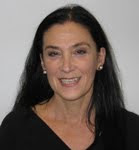The other day I was reading some posts on a
perfume-making group that I follow, mostly as an observer, and was struck by a
post advertising a new site that plans to sell perfume bases of various kinds. A
base is a ready-made accord, for example, a synthetic rose, violet, oud, or
leather scent, sort of a single-note perfume on its own. The post not only
contains glowing descriptions of the bases that this company plans to sell, but
makes it sound as if they’re miracle potions that will turn anyone and everyone
into a master perfumer. Here’s a quote:
“This will help many people take the leap
from consumer to producer. Also, in the upcoming years, there will be a huge
increase in the quality of independent fragrances because of these exquisite
bases which will be available to us …
Just imagine what we could accomplish with materials like these! This is the
bridge which will eliminate the distinction between amateur and professional
perfumes.”
Really? Everyone is going to be a professional perfumer? If everyone is a professional based on someone else’s work, then the only professional is the person who originally formulated the bases.
 Now
there’s nothing wrong with good-quality bases. I’ve formulated my share of them
myself for use in my own creations, and am not averse to using a good
commercial one if (and only if) it comes up to my standards and serves my
intended purpose. However, the statement that having exceptionally good bases
available for purchase will make everyone a great, or even competent, perfumer
is kind of like saying that selling an electronic keyboard with synthesized
sounds of a Steinway grand piano and Stradivarius violin to people with no
musical training or talent will immediately enable them to make beautiful and
original music with no study or practice.
Now
there’s nothing wrong with good-quality bases. I’ve formulated my share of them
myself for use in my own creations, and am not averse to using a good
commercial one if (and only if) it comes up to my standards and serves my
intended purpose. However, the statement that having exceptionally good bases
available for purchase will make everyone a great, or even competent, perfumer
is kind of like saying that selling an electronic keyboard with synthesized
sounds of a Steinway grand piano and Stradivarius violin to people with no
musical training or talent will immediately enable them to make beautiful and
original music with no study or practice.
Perfume,
like music, is an art of composition. In skilled and imaginative hands, the
simplest scales, rhythms, and chord progressions can be used to create an
infinite number of beautiful, original, and evocative melodies and harmonies; in
perfumery the simplest materials can be used to create beautiful, original, and
evocative fragrances, but a certain amount of knowledge, skill, inspiration,
and feeling for the art is required in ether case.
It
may be that the ubiquity of useful and cost-effective commercial bases is one
of the factors that already causes so many perfumes to smell so similar. If
every musician used the same pre-programmed drum machine sequence and set of melodic
samples, there would be a lot of similarity in the resulting compositions.
I
suppose the idea expressed in the post is that even an unskilled person can
take a beautiful ready-made mixture and use it as their own, but there are
already many excellent materials available, including naturals, which are complex
accords in their own right. Another implicit point is that having good quality
raw materials to start with is essential to having a good finished product – a
point in which I am in complete agreement. However, learning how to use raw
materials to create something original and compelling is the real trick. That
is why I find this post is so puzzling.
After
writing this, I realize that it might be fun to start a Wednesday series on raw
materials for perfumery, and will try to post on this topic as often as I can.
[Artistic images of "miracle potion" vendors by an anonymous 17th century artist, Rembrandt, and Giovanni Domenico Tiepolo; photographic images from Wikimedia]
[Artistic images of "miracle potion" vendors by an anonymous 17th century artist, Rembrandt, and Giovanni Domenico Tiepolo; photographic images from Wikimedia]








Hi Ellen,
ReplyDeleteI would love a Wednesday series on raw materials. I read about them all the time but never really KNOW about them because I rarely have an opportunity to smell and touch them. Admittedly reading a post here wouldn't do that for me either, but I know that your impressions and descriptions of the materials and their applications would be so much better than what I can find anywhere else.
That being said, just the other day I was having a conversation about skill levels vs technology relating to music performance and composition. I believe that there really is no substitute for real skill, knowledge and experience in music. However, new technologies are a blessing for people, who, for one reason or another, will never acquire the necessary skills and understanding to perform or write well in "real time". Many of these people have amazing creative spirits and something important to offer and are able to do really wonderful things by not just simply consuming the technology but using it in very creative ways. They are still consumers, though. We all are! Do they know what they are doing? Probably not. Is their work "professional"? That depends on the definition of the word...
Azar xx
Gail, you know you can come sniff raw materials in my studio any time. As you point out there is a continuum between consumer and creator and between amateur and professional, with all conditions in between and shifting roles. I have no issue with giving everyone accessible tools of all kinds to work with - in fact, that's a good thing. What I question is the statement that a specific set of perfume bases are such miracle potions that they will suddenly allow anyone and everyone to instantly create wonderful perfumes that could not be created using the current large selection of available materials. It's not the concept, it's the over-the-top rhetoric that could engender false expectations.
ReplyDeleteI agree, Ellen! It's kind of like the "Teach Yourself Piano in Three Weeks" videos. "You too can play like a pro - just buy this video."
DeleteI would also love a series on raw materials!
ReplyDeleteYuki, I will be doing a series on raw materials starting next Wednesday. It should be fun to write!
DeleteThat's great news! I look forward to reading it :)
DeleteProfessional perfumers, eh? Well, good premade bases (like the Givcos) will certainly make it *easier* to create a professional quality perfume (it will certainly save time over formulating a rose or jasmine of one's own), it's not going to be the end-all. If a person doesn't have the nose to know when a perfume is balanced, or needs something else, the perfume will be lacking. I could take a bunch of Givcos and mix them together and it would only be chance if it turned out well.
ReplyDeleteLaurie, exactly. You could mix all of the best Givcos together and still have a mess. Speaking of Givcos, there are a few that I like, but now I mostly formulate my own proprietary bases.
DeleteA risk of using perfume bases is that if the supplier one day disappears, rebuilding the bases to smell exactly like them by yourself is going to be tricky. I've read that the perfumer of Robert Piguet's famous Fracas and Bandit used bases to create the perfumes, and when the perfume house was being revived, they had to rebuild the perfumes from scratch because the base suppliers were no longer in business.
ReplyDeleteVictor, the problem is not just with bases, although that's probably a bigger risk than individual aromachems or common essential oils. Suppliers disappear all the time, and so do individual materials of all types. That is one of the risks and challenges of perfume-making.
Delete